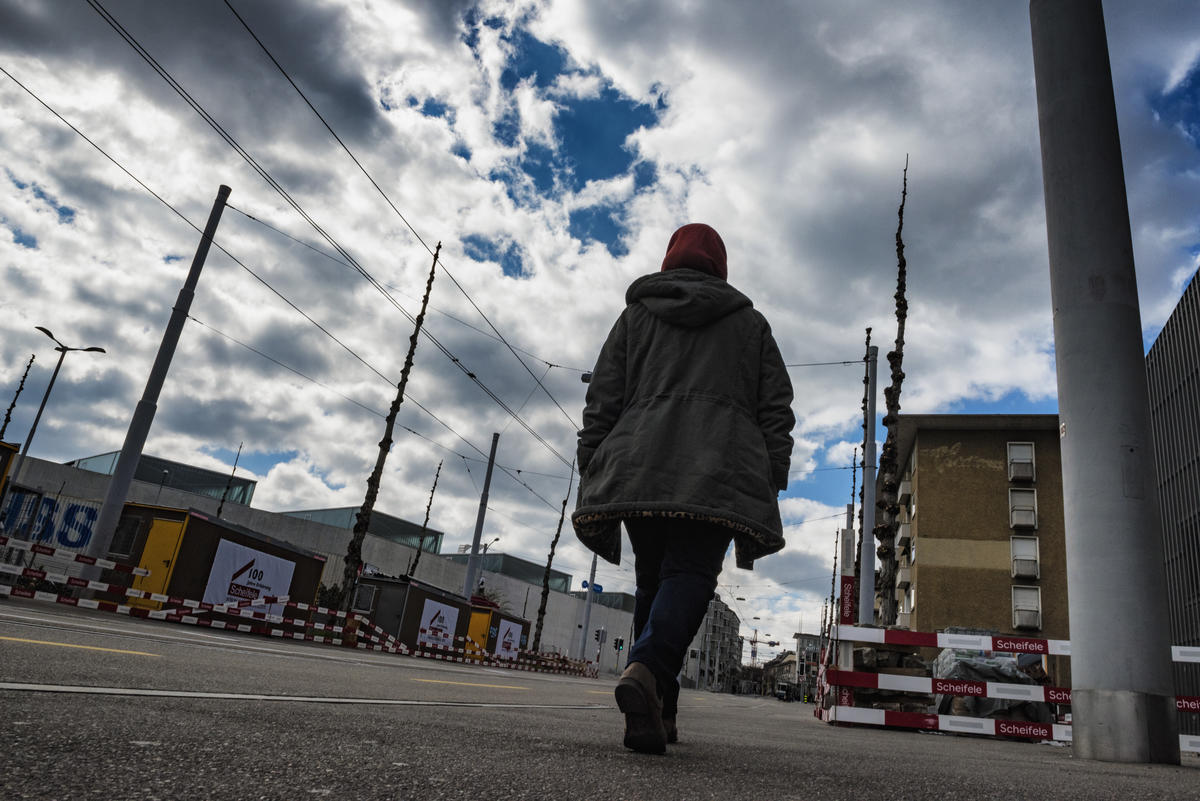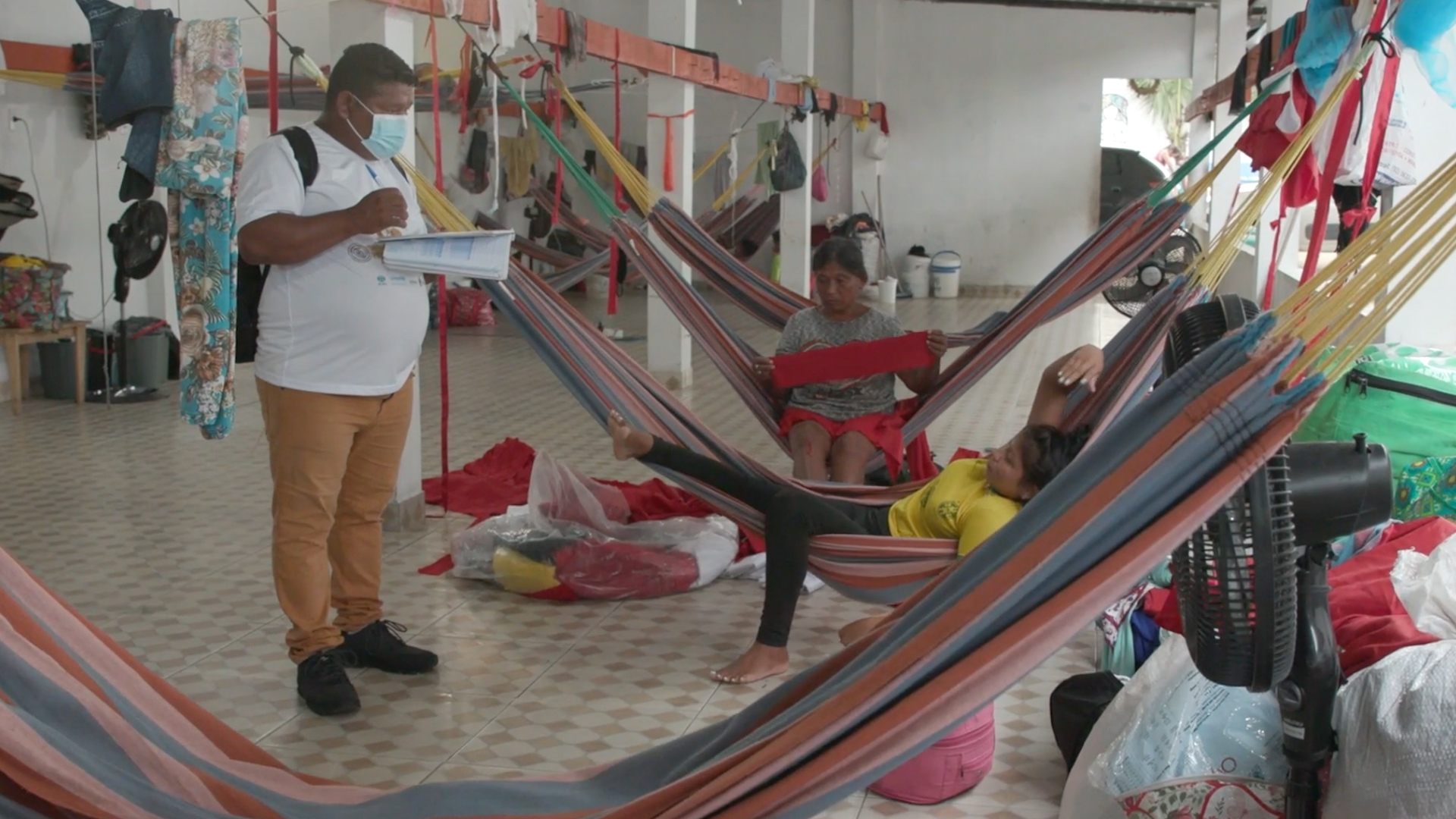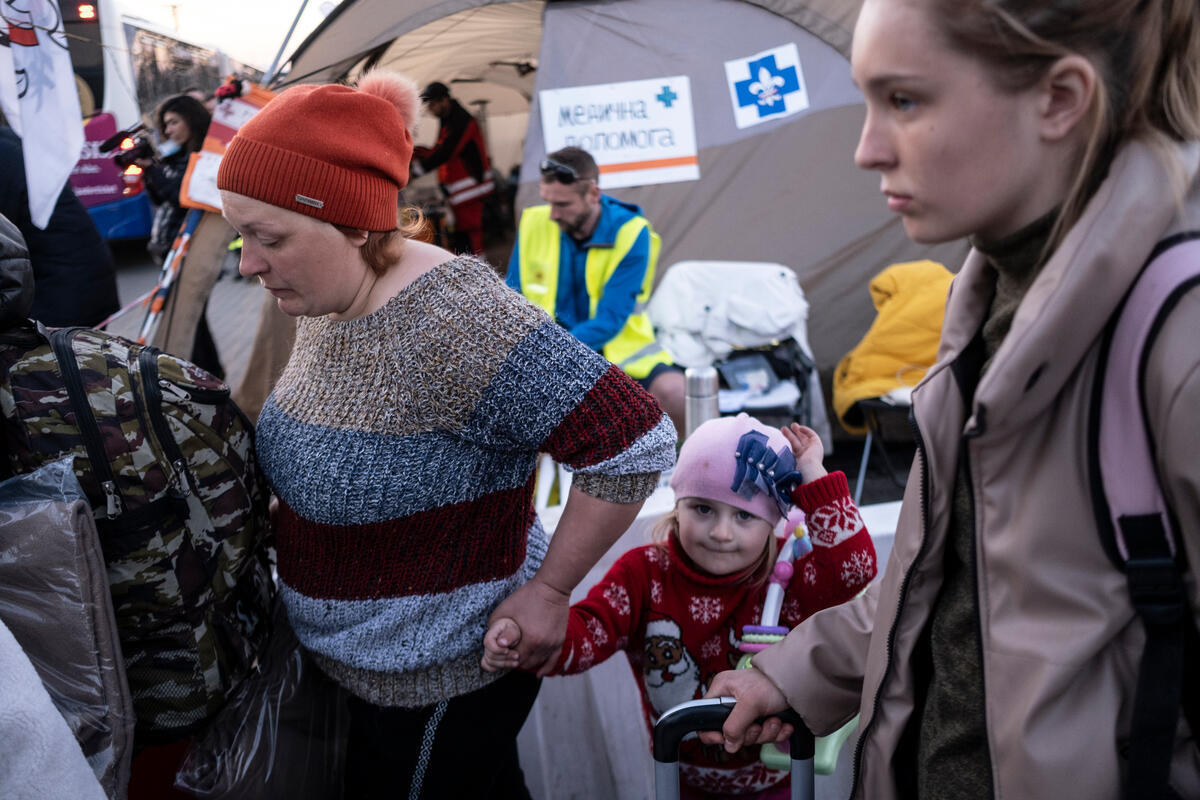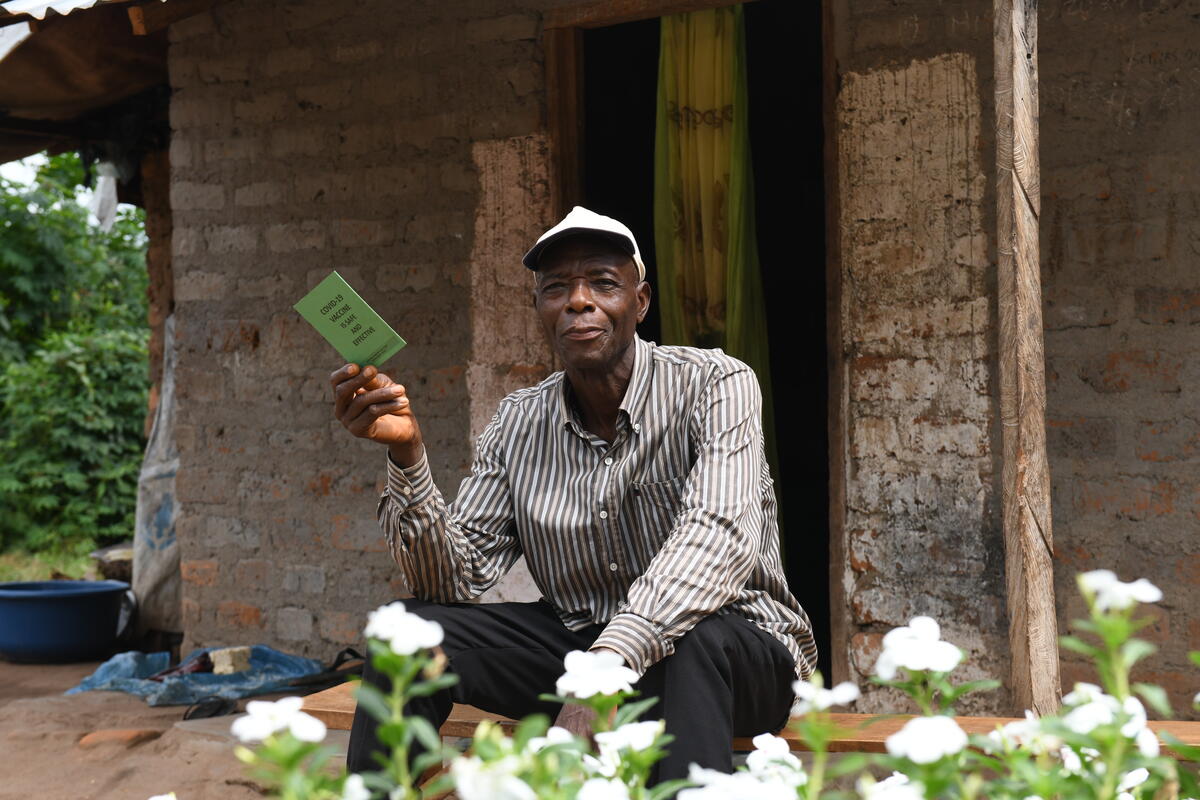Sudanese provides safe haven to fellow refugees in Libya
Sudanese provides safe haven to fellow refugees in Libya
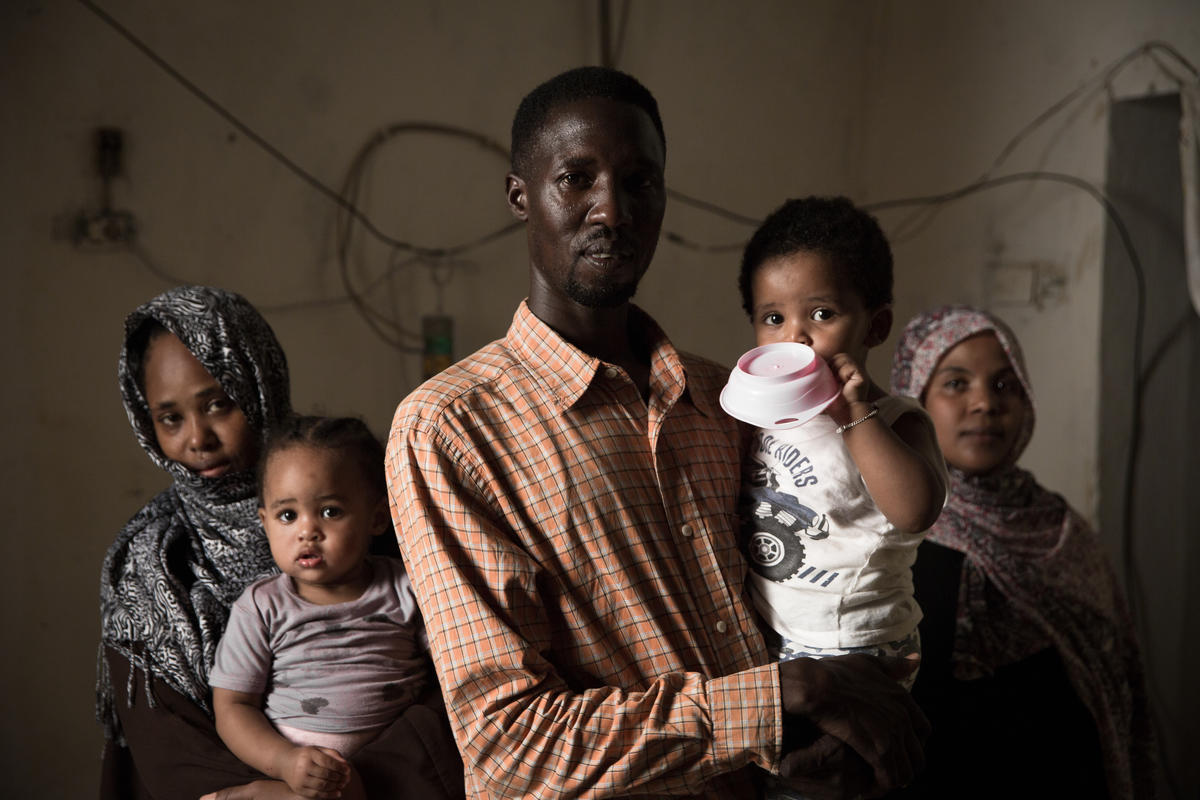
In 2003, Osman fled civil war in Darfur after witnessing armed men kill his father and loot his family’s property. Then aged only 19 and afraid for his life, he made it across the border to Libya on his own, leaving everyone he knew behind.
At first, he struggled to find work in the capital Tripoli, where he knew no one, but finally found informal work in the construction sector. Now 35, Osman remembers the desperation he felt as a newly arrived refugee in Libya and vowed to help others as they strived to build a life here.
Since 2016, the 35-year old has opened his home to families, single mothers, unaccompanied minors and people with serious medical conditions, hosting more than 200 refugees over three years in his sparsely furnished three-bedroom home in central Tripoli.
"I know the value of finding a helping hand."
“Helping other people in need gives me a purpose in life”, Osman explained. “I was once a stranger in this city with no one to turn to, and I know the value of finding a helping hand.”
His efforts were part of a caregivers’ programme run by UNHCR, the UN Refugee Agency, that places at-risk individuals with more established refugee volunteers until they are able support themselves.
The programme has become especially vital as the situation grows increasingly challenging for refugees and asylum seekers in the country. Ongoing conflict and instability since the 2011 uprising that removed Muammar Gaddafi has left them and others vulnerable to exploitation and abuse at the hands of armed groups and criminal networks.
Volunteers such as Osman, who despite the risks chose to stay in the war-ravaged nation rather than uproot himself again, can provide a safe place to stay as well as friendship and support to fellow refugees.
The most recent guests staying with Osman in the densely-populated neighbourhood where he lives were two young Eritrean women and their children, Hayat and her four-year-old son Zuhair, and Rahma and her infant daughter Almaz.
Due to the limited number of caregivers and the urgency of finding a shelter for the two vulnerable women, Osman was selected as the most suitable candidate. As with all participants in the caregivers’ initiative, UNHCR’s partners vet potential hosts and make regular monitoring visits to ensure that living conditions are adequate and guests feel comfortable and safe.
Hayat, 22, grew up in Ethiopia after leaving Eritrea when she was just four years old. After getting married, she and her husband decided to leave the country in search of a better future.
They arrived in Libya hoping to cross the sea to Europe and start a new life. But they were held captive by smugglers who demanded US$10,000 for their release – a fee they had no way of paying.
While in captivity, Hayat – who was pregnant – and her husband were regularly beaten. One day while trying to defend his wife, Hayat’s husband was killed in front of her.
"My life turned into darkness."
After this terrible incident, the traffickers let Hayat go. Alone and disoriented, she walked for hours trying to reach the nearest town but was arrested at a security checkpoint for being undocumented and for having entered the country in an irregular manner.
She ended up in a detention centre run by the Libyan authorities for months, until UNHCR staff members visited the centre, registered her and advocated for her release.
“Since we left Ethiopia, my life turned into darkness,” said Hayat. “Losing my husband was the most difficult thing I’ve gone through. But today, my son gives me strength and hope to go on, even though there is little I can offer him in this country. I can’t even take him to school.”
Today, Hayat is one of more than 40,000 refugees and asylum seekers living in urban areas of the country. She is grateful to have met Osman, whom she regards as a big brother to her and her son Zuhair.
Together with Rahma and her daughter, the five spent time chatting about their experiences and what they left behind, but also about their hopes for the future. Their favourite moments were spent around the dining table, exchanging stories and jokes while sharing a meal.
"Hayat has been very brave."
Thanks to the generosity of Osman and others like him, the caregivers’ programme currently provides shelter and support to dozens of refugees and asylum seekers. UNHCR hopes to expand the number of hosts in order to accommodate more vulnerable cases.
Osman recently left the caregivers programme to work as a UNHCR community mobiliser, providing the community with information and advice about the assistance available and flagging up any specific cases requiring extra support to UNHCR and its partners.
Given his own experiences, Osman understands the difficulties people like Hayat face trying to get by in Libya, and is happy to have done what he can to help her find her feet.
“It’s extremely hard for a single mother to find work in Libya and to provide care for her child at the same time,” Osman said. “Hayat has been very brave.”





